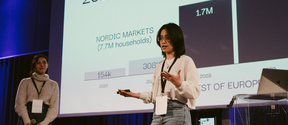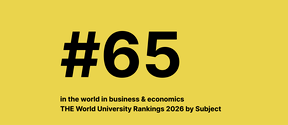The sustainable use of metals is at the core of fighting climate change – It’s no use to substitute walking with electric scooters

Using and recycling metals sustainably is at the core of the fight against climate change. Metals of different types are used in batteries and other electronics. As the use and need for technology and electronic devices increases, so does the need for many metals.
Mari Lundström and Ari Jokilaakso, professors of metallurgy at Aalto University’s School of Chemical Engineering, agree that the consumption of metals needs more attention, in order to ensure an adequate supply of the metals required in batteries, for example.
‘Many metals which are crucial, or whose availability is critical, are only available as by-products of the mining industry’, Jokilaakso says.
The processing of rare metals, such as scandium, neodymium, and dysprosium, is very challenging. However, the greatest problem with availability and sustainability may involve human behaviour.
‘The most important problem linked with the use of metals is not metallurgical, but social. Our consumption habits are not at a sustainable level’, Lunström observes.
There is a huge for metals because we are generally using much more than we used to. According to Jokilaakso, the growth in the number of people who consume more than before is also a critical question.
‘Metallurgists enter the picture in that we must successfully produce and utilise existing metals as efficiently as possible. We must not waste the raw material. Effluents also need to be utilised and the circular economy must be made to work. We cannot bring consumption down simply by snapping our fingers’, Jokilaakso says.
Everyone can contribute
Each one of us can pay heed in our everyday lives to the sustainable use of metals. Lundström and Jokilaakso urge people to use batteries and electronic equipment as long as possible. The quality of devices and metal products should also be considered at the time of purchase. A product of higher quality might be more expensive, but it is likely to last longer in use.
‘We should get rid of single-use goods. When metals have been refined and taken into use, it is worthwhile to use them a long time and to recycle them. When they have to be given it up it is important for the metals to be recycled as quickly as possible’, Lundström observes.
Efficient recycling of metals means that new raw materials are needed less. Lundström feels that Finland has good possibilities for an efficient circular economy in metals, and industry has joined the effort. We also have the advantage of a high level of skills and knowledge.
Although consumers can make good choices with metals as well, Jokilaakso nevertheless wants to emphasise the importance of change at the systemic level. Individuals, decision-makers, and businesses all share responsibility.
‘When the fight began against ozone depletion, which is caused by freons, individual people were not chided for using refrigerators. Instead, refrigerator manufacturers were compelled to replace freon with some other substance.’

Electric scooter or walking?
The professors also say that the electrification of transport is not necessarily an environmentally friendly solution. For example, if riding electric scooters replaces walking or cycling, the environmental impact is negative. Even electric cars do not help the environment unless they actually lead to a reduction in the use of cars powered by internal combustion. Emissions from metal production also need to be considered.
‘For example, if you choose an electric car instead of the Metro, which is constantly in service, to get from Otaniemi to the centre of Helsinki, it is not an ecological choice.’
However, the professors’ message is one of hope. At a metallurgical conference held at Aalto University in early November, it was evident that research in the field is making fast progress. Sustainable development and the circular economy are major topics at present, and not without reason.

Read more news

Aalto University to host INNOVA Europe 2026 Grand Final in Espoo
Aalto University will host the INNOVA Europe 2026 Grand Final in Espoo, bringing together leading student-led startups from European universities.
Finnish AI Region Secures Second Term with Top Marks from EU
Finnish AI Region (FAIR) EDIH has been selected to continue operations for a second term with excellent ratings. European Union continuation funding enables service expansion from the beginning of 2026. Aalto University is one of 10 partners in FAIR.
Business & economics and computer science ranked in top 100 globally
The Times Higher Education ranking measures universities with 18 indicators, including international research and citations






